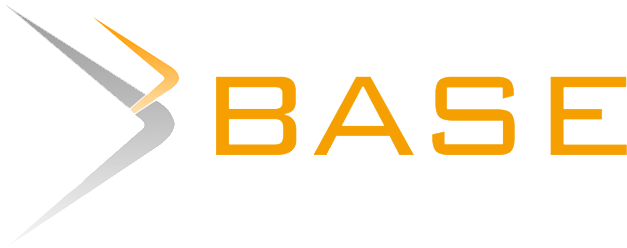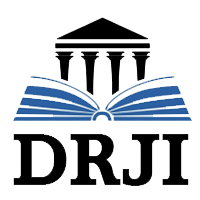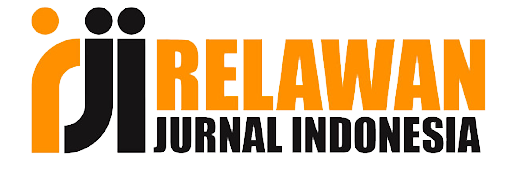Peran Gratitude Sebagai Mediator Antara Perceived Teacher’s Social Support dan Purpose in Life Pada Remaja
Abstract
During adolescence, students begin to develop purpose in life and strategies to achieve them. The perceived social support of teachers is an initial stimulus for students to discover life goals. However, gratitude can also be a positive predictor for students to reflect on support, experiences, and challenges to find purpose in life that have an impact on the environment. The present study focused on examining the effect of perceived teachers' social support on purpose in life with gratitude as the mediator variable. This study used quantitative methods with a mediation design. The participants in this study were 204 SMA/MA/SMK students in grades 10-12, aged 15-18 years, and domiciled in Indonesia. Data collection used accidental sampling and snowball sampling where questionnaires were distributed online through social media. Data analysis was conducted using JASP 0.14.1 and hypothesis testing through mediation analysis with a causal steps model. The results of the mediation analysis showed that perceived teachers' social support has a significant influence on purpose in life through gratitude as a mediator variable, but the resulting mediation effect is partial. The implications of this research can help the school environment, especially teachers, in helping students find a meaningful purpose in life.
Pada usia remaja, pelajar mulai merancang purpose in life dan strategi untuk mencapainya. Adanya perceived teacher’s social support menjadi stimulus awal bagi pelajar untuk menemukan purpose in life. Akan tetapi gratitude juga dapat menjadi prediktor positif bagi pelajar untuk merefleksikan dukungan, pengalaman, dan tantangan untuk menemukan purpose in life yang berdampak bagi lingkungan. Melalui penelitian ini, peneliti berfokus untuk menguji pengaruh perceived teacher’s social support terhadap purpose in life dengan gratitude sebagai variabel mediator. Penelitian ini menggunakan metode kuantitatif dengan desain mediasi. Partisipan dalam penelitian ini adalah pelajar SMA/MA/SMK kelas 10-12, berusia 15-18 tahun, dan berdomisili di Indonesia. Pengambilan data menggunakan accidental sampling dimana kuesioner disebarkan secara online melalui media sosial. Analisis data dilakukan menggunakan JASP 0.14.1 dan uji hipotesis melalui analisis mediasi dengan model causal steps. Hasil analisis mediasi menunjukkan perceived teacher’s social support memiliki pengaruh yang signifikan terhadap purpose in life melalui gratitude sebagai variabel mediator, tetapi efek mediasi yang dihasilkan bersifat parsial. Implikasi hasil penelitian ini dapat membantu lingkungan sekolah terutama guru dalam mendampingi siswa menemukan purpose in life yang bermakna.
Keywords
Full Text:
PDFReferences
Ajis, O.T., Sugiyanta, I.G., Z. (2013). Faktor-faktor penyebab anak putus sekolah pada tingkat sma di kelurahan gedong meneng kecamatan rajabasa kota Bandar Lampung. Jurnal Penelitian Geografi, 1(3).
Anandar, R., Wibhawa, B., & Wibowo, H. (2015). Dukungan sosial terhadap anak jalanan di rumah singgah. Share : Social Work Journal, 5(1).
Anandari, D. S. (2013). Hubungan persepsi siswa atas dukungan sosial guru dengan self-efficacy pelajaran matematika pada siswa sma negeri 14 Surabaya. Jurnal Psikologi Pendidikan Dan Perkembangan, 2(3), 210–217.
Balthip, K, Petchruschatachart, U., Piriyakoontorn, S., & Liamputtong, P. (2017). Purpose in life among Thai junior high school adolescents. Journal of Nursing, 37, 89–97. https://he02.tci-thaijo.org/index.php/nur-psu/article/view/106593.
Baron, R. M., & Kenny, D. A. (1986). The moderator-mediator variable distinction in social psychological research: Conceptual, strategic, and statistical considerations. Journal of Personality and Social Psychology, 51(6), 1173–1182. https://doi.org/10.1037/0022-3514.51.6.1173.
Bronk, K. C. (2011). The role of purpose in life in healthy identity formation: A grounded model. New Directions For Youth Development, 2011(132), 31-44.
Bronk, K. C. (2012). A grounded theory of the development of noble youth purpose. Journal of Adolescent Research, 27(1), 78–109. https://doi.org/10.1177/0743558411412958.
Bronk, K. C. (2014). Purpose in life: A critical component of optimal youth development. Springer Science and Business Media.
Bronk, K. C., Hill, P. L., Lapsley, D. K., Talib, T. L., & Finch, H. (2009). Purpose, hope, and life satisfaction in three age groups. Journal of Positive Psychology, 4(6), 500–510. https://doi.org/10.1080/17439760903271439.
Bundick, M. J., Andrews, M. C., Jones, A., Moran, S., Mariano, J. M., Bronk, K. C., & Damon, W. (2008). Youth Purpose Survey Version 2008. Unpublished instrument. Stanford Center on Adolescence. Stanford, CA.
Bundick, M. J., & Tirri, K. (2014). Student perceptions of teacher support and competencies for fostering youth purpose and positive youth development: Perspectives from two countries. Applied Developmental Science, 18(3), 148–162.
Colby, A. (2020). Purpose as a unifying goal for higher education. Journal of College and Character, 21(1), 21–29. https://doi.org/10.1080/2194587x.2019.1696829.
Copeland, K. J., & Levesque-Bristol, C. (2010). The retention dilemma: Effectively reaching the first-year university student. In Journal of College Student Retention: Research, Theory and Practice 12(4). https://doi.org/10.2190/CS.12.4.f.
Damon, W., Menon, J., & Bronk, K. C. (2003). The development of purpose during adolescence. Applied Developmental Science, 7(3), 119–128.
Destyani, A., Ghazali, A., Harizta, A., & Nashori, H. (2020, March). Social support, gratitude and psychological well-being of persons with disabilities. In Proceedings of the 1st International Conference on Religion and Mental Health, ICRMH 2019, 18-19 September 2019, Jakarta, Indonesia.
Dewitz, S. J., Woolsey, M. L., & Walsh, W. B. (2009). College student retention: An exploration of the relationship between self-efficacy beliefs and purpose in life among college students. Journal of College Student Development, 50(1), 19–34.
Elya, & Widyatno, A. (2022). Hubungan tujuan hidup dan resiliensi pada remaja yang kehilangan orang tua karena meninggal mendadak. Jurnal Flourishing, 2(4), 298–314. https://doi.org/10.17977/10.17977/.
Emmons, R. A., & McCullough, M. E. (Eds.). (2004). The psychology of gratitude. Oxford University Press.
Fanggidae, Y. M., & Radja, M. D. (2020). The effect of teacher social support on student achievement motivation. Jurnal Penelitian Dan Pengembangan Pendidikan, 3(1), 43–50.
Fritz, M. S., & MacKinnon, D. P. (2007). Required sample size to detect the mediated effect. Psychological Science, 18(3), 233–239.
Froh, J. J., Bono, G., & Emmons, R. (2010). Being grateful is beyond good manners: Gratitude and motivation to contribute to society among early adolescents. Motivation and Emotion, 34(2), 144–157. https://doi.org/10.1007/s11031-010-9163-z.
Froh, J. J., Kashdan, T. B., Ozimkowski, K. M., & Miller, N. (2009). Who benefits the most from a gratitude intervention in children and adolescents? Examining positive affect as a moderator. Journal of Positive Psychology, 4(5), 408–422.
Hakim, A. (2020). Faktor penyebab anak putus sekolah. Jurnal Pendidikan, 21(2), 122–132. https://doi.org/10.33830/jp.v21i2.907.2020.
Kementerian Pendidikan dan Kebudayaan. (2021). Statistik Persekolahan SMA 2020/2021. Pusdatin Kemendikbud.
Lavy, S., & Benish-Weisman, M. (2021). Character strengths as “values in action”: Linking character strengths with values theory – an exploratory study of the case of gratitude and self-transcendence. Frontiers in Psychology, 12(February), 1–9.
Liauw, I., Baelen, R. N., Borah, R. F., Yu, A., & Colby, A. (2018). Gratitude for teachers as a psychological resource for early adolescents: A mixed-methods study. Journal of Moral Education, 47(4), 397–414. https://doi.org/10.1080/03057240.2017.1415872.
Malecki, C. K., & Demaray, M. K. (2002). Measuring perceived social support: Development of the child and adolescent social support scale (CASSS). Psychology in the Schools, 39(1), 1–18. https://doi.org/10.1002/pits.10004.
Malecki, C. K., & Demaray, M. K. (2006). Social support as a buffer in the relationship between socioeconomic status and academic performance. School Psychology Quarterly, 21(4), 375–395. https://doi.org/10.1037/h0084129.
Malin, H., Liauw, I., & Remington, K. (2019). Early adolescent purpose development and perceived supports for purpose development at school. Journal of Character Education, 15(2), 1–20.
Malin, H. (2022). Engaging purpose in college: A person-centered approach to studying purpose in relation to college experiences. Applied Developmental Science, 0(0), 1–16. https://doi.org/10.1080/10888691.2022.2033120.
Malin, H., Liauw, I., & Damon, W. (2017). Purpose and character development in early adolescence. Journal of Youth and Adolescence, 46(6), 1200–1215.
Mawar, R. (2021). Problematika anak putus sekolah di desa duwanur kabupaten Flores Timur. SocioEdu : Sociological Education, 2(1), 29–35.
McCullough, M. E., Emmons, R. A., & Tsang, J. A. (2002). The grateful disposition: A conceptual and empirical topography. Journal of Personality and Social Psychology, 82(1), 112–127. https://doi.org/10.1037/0022-3514.82.1.112.
Metheny, J., McWhirter, E. H., & O’Neil, M. E. (2008). Measuring perceived teacher support and its influence on adolescent career development. Journal of Career Assessment, 16(2), 218–237. https://doi.org/10.1177/1069072707313198.
Moran, S., Bundick, M. J., Malin, H., & Reilly, T. S. (2013). How supportive of their specific purposes do youth believe their family and friends are? Journal of Adolescent Research, 28(3), 348–377. https://doi.org/10.1177/0743558412457816.
Mufidah, A. C. (2017). Hubungan antara dukungan sosial terhadap resiliensi mahasiswa bidikmisi dengan mediasi efikasi diri. Jurnal Sains Psikologi, 6(2), 68–74.
Oktasari, M. (2017). Perceptions around teacher’s social support with student achievement motivation. Teraputik: Jurnal Bimbingan Dan Konseling, 1(2), 145.
Prabowo, A. (2017). Gratitude dan psychological wellbeing pada remaja. Jurnal Ilmiah Psikologi Terapan, 5(2), 260–270.
Pradhata, D.R., & Muhid, A. (2021). Mastery goal orientation, social support dan student engagement siswa madrasah aliyah. Jurnal Penelitian Psikologi, 12(1), 18–24. https://doi.org/10.29080/jpp.v12i1.488.
Pridayati, T., & Indrawati, E. (2019). Hubungan antara forgiveness dan gratitude dengan psychological well-being pada remaja. Jurnal IKRA-ITH Humaniora, 3(3), 197–206.
Putri, A.E., Trisnaningsih., Nugraheni, I. L. (2018). Faktor-faktor penyebab anak putus sekolah jenjang pendidikan dasar. Jurnal Penelitian Geografi (JPG), 6(5), 215-222.
Quinn, B. P. (2017). Supporting generous purpose in adolescence: The roles of school climate and spirituality. International Journal of Children’s Spirituality, 22(3–4), 197–219.
Ramdhanu, C. A., Sunarya, Y., & Nurhudaya. (2019). Faktor – faktor yang mempengaruhi identitas diri. Journal of Innovative Counseling : Theory, Practice & Research, 3(1), 7–17.
Reilly, T. S., & Mariano, J. M. (2021). Fostering mature purpose beyond the classroom: Considering family and other institutions in agentic purpose commitment. Estudos de Psicologia (Campinas), 38, 1–13. https://doi.org/10.1590/1982-0275202138e210115.
Rizky, F., Putri, A. R., & Handoko, F. S. (2020). Intrinsic motivation correlation and social support with self-efficacy of youth on lembaga pemasyarakatan khusus anak (LPKA) Tangerang, Indonesia. European Journal of Education Studies, 6(11), 33–41
Santrock, J. W. (2011). Life span development thirteenth edition (13th ed.). Mc Graw Hill.
Santrock, J. W. (2007). Adolescence eleventh edition (11th ed). McGraw Hill.
Sarafino, E. P., & Smith, T. W. (2014). Health psychology: Biopsychosocial interactions. John Wiley & Sons.
Senko, C. (2019). When do mastery and performance goals facilitate academic achievement? Contemporary Educational Psychology, 59(July), 101795.
Song, J., Bong, M., Lee, K., & Kim, S. Il. (2015). Longitudinal investigation into the role of perceived social support in adolescents’ academic motivation and achievement. Journal of Educational Psychology, 107(3), 821–841. https://doi.org/10.1037/edu0000016.
Sumardani, Y. F., & Matulessy, A. (2021). The social support to increase student resilience during distance learning during pandemic. International Seminar of Multicultural Psychology, 103–111.
Tardy, C. (1985). Social support measurement. American Journal of Community, 13(2), 187–202.
Yeager, D. S., Henderson, M. D., Paunesku, D., Walton, G. M., D’Mello, S., Spitzer, B. J., & Duckworth, A. L. (2014). Boring but important: A self-transcendent purpose for learning fosters academic self-regulation. Journal of Personality and Social Psychology, 107(4), 559–580. https://doi.org/10.1037/a0037637.
Yuliawati, L. (2018). Predictors and outcomes of a sense of purpose in life: A longitudinal study in hong kong and Indonesia [Unpublished doctoral dissertation]. The University of Hong Kong, Hong Kong.
Yunanto, T. A. R. (2020). The power of positivity: The roles of prosocial behavior and social support toward gratitude. Jurnal Psikologi Ulayat, 7(1), 57–68.
Zhang, M. X., Mou, N. L., Tong, K. K., & Wu, A. M. S. (2018). Investigation of the effects of purpose in life, grit, gratitude, and school belonging on mental distress among Chinese emerging adults. International Journal of Environmental Research and Public Health, 15(10), 1–12. https://doi.org/10.3390/ijerph15102147.
DOI: https://doi.org/10.24176/perseptual.v9i1.12174
Refbacks
- There are currently no refbacks.

Jurnal Psikologi Perseptual (eISSN 2580-9520) is licensed under a Creative Commons Attribution-ShareAlike 4.0 International License














